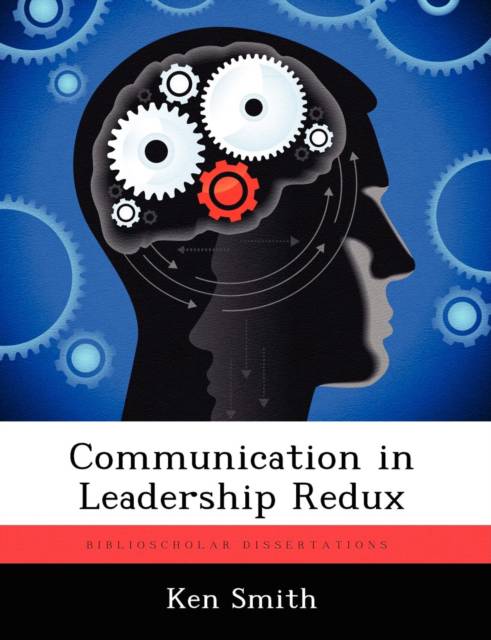
- Afhalen na 1 uur in een winkel met voorraad
- Gratis thuislevering in België vanaf € 30
- Ruim aanbod met 7 miljoen producten
- Afhalen na 1 uur in een winkel met voorraad
- Gratis thuislevering in België vanaf € 30
- Ruim aanbod met 7 miljoen producten
Zoeken
Omschrijving
Communicating official messages to soldiers within the United States Army is an endeavor that leaders at every level have conducted since the inception of the organization. Army doctrine links communication to leadership via the terminological reliance on influence. Communication is sometimes labeled as propaganda due to an underlying intent to influence. Leadership, just like propaganda, is founded upon the art and science of influencing people. The technical issues of how to effectively communicate messages have changed primarily by way of the means available at any given time of the Army's history. Secondary considerations, such as how to counter competing messages, are evident in the communication planning and decision making of the past and present. This monograph compares methods of communicating official messages from the leadership of the Department of the Army to soldiers within the United States Army. The analysis focuses on the time period between the years spanning World War II through the Eisenhower Presidency. Additional data is presented from either Allied or enemy examples in World War II or the United States in the intermediate years to aid in discussion as applicable to contemporary methods and modes of communication. The problems faced by leaders and planners within the Department of Defense and the Department of the Army have remained relatively consistent over the years, changing mainly in terms of the quantity and speed of information that soldiers must process and prioritize in competition for official message space. Military doctrine has adapted over time to incorporate the integration of influence and communication within the foundations of leadership. Regardless of the medium used or audience targeted, successful leaders often use enduring principles of communication that transcend the evolution of technology. As a result, military leaders continue to adapt to the evolving environment by using every means available to communicate with sold
Specificaties
Betrokkenen
- Auteur(s):
- Uitgeverij:
Inhoud
- Aantal bladzijden:
- 62
- Taal:
- Engels
Eigenschappen
- Productcode (EAN):
- 9781249911647
- Verschijningsdatum:
- 23/10/2012
- Uitvoering:
- Paperback
- Formaat:
- Trade paperback (VS)
- Afmetingen:
- 189 mm x 246 mm
- Gewicht:
- 127 g

Alleen bij Standaard Boekhandel
+ 108 punten op je klantenkaart van Standaard Boekhandel
Beoordelingen
We publiceren alleen reviews die voldoen aan de voorwaarden voor reviews. Bekijk onze voorwaarden voor reviews.











